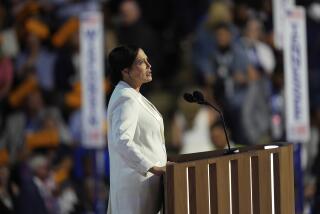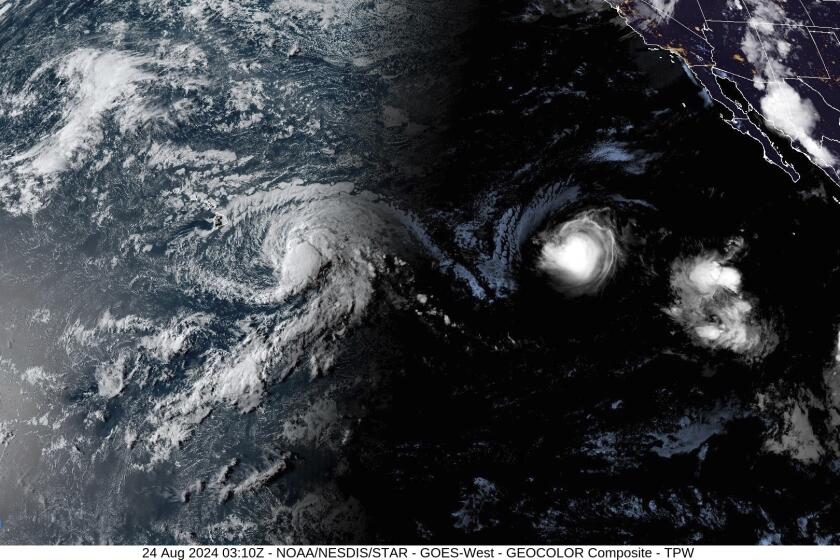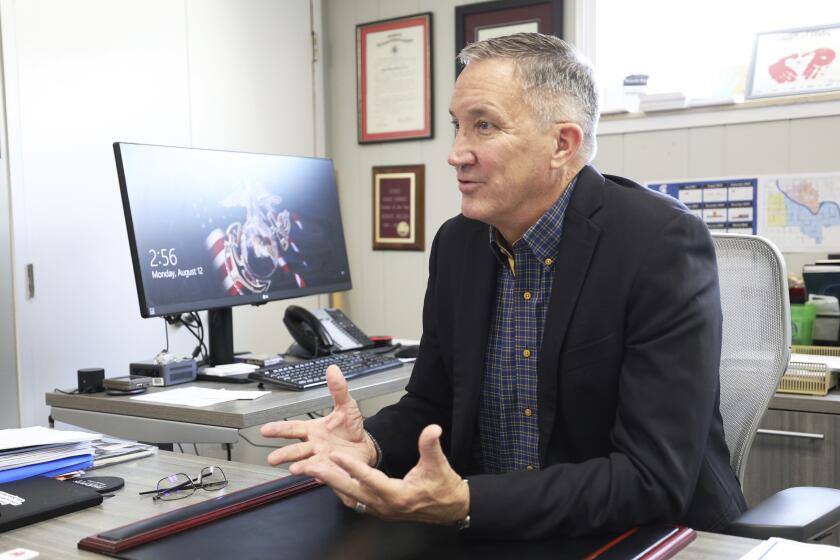In Citadel of the Rich, Dalai Lama Sips, Speaks
It seemed an hour of incongruities. Draped by a simple robe, his Holiness the 14th Dalai Lama of Tibet sat Saturday in a luxurious private country club in Newport Beach, surrounded by an audience of expensively attired Westerners, and sipped hot water from a teacup.
Planted in Orange County’s plushest resort city, the exiled religious and political leader of Tibet delivered a message of spiritual happiness and peace through personal transformation.
Kicking off a weeklong visit to the area for an unusual spiritual conference that begins Monday in Newport Beach, the Dalai Lama fielded questions from the press and his fans in a wing of the posh Big Canyon Country Club.
Smiling often and hunching in a comfortable chair, the 1989 Nobel Peace Prize nominee pranced across a world of topics, ranging from the troubled situation in his homeland to problems with pollution.
The Internal World
But the high religious leader continually returned to a central theme: the importance of inner harmony to deal with a troubled globe.
“If the internal world is not stable, then no matter what the external world brings, you will not be happy,” he said in lilting English. “If the internal world is stable, then no matter what the external world brings . . . there can be very little effect on the internal.”
His own life is a testament to those beliefs.
Born in 1935 in the province of Amdo, Tibet, he became Dalai Lama at the age of 2 after a nationwide search by the highest Buddhist leaders of the land led them to believe he was the reincarnation of his predecessor.
He spent his childhood with monks, receiving only rare visits from family, and studied science, mathematics and a variety of languages.
When the Communist Chinese invaded Tibet in 1950, he assumed political power of the region at the age of 16. By 1959, a popular uprising against the Chinese prompted the Communist government to crack down, resulting in bloodshed that claimed the lives of 500,000.
Flight to India
Along with 100,000 refugees, the Dalai Lama fled across the border into India, where he now lives.
Through the years, the Dalai Lama has become a fixture on the international scene, traveling the continents to deliver his message of spiritual hope and to plead for peace in his homeland.
It has been an uphill battle. In March, 30 years after the original uprising, Tibet was again gripped by a popular revolt that was squashed by the Chinese government.
Recent reports by Amnesty International allege that China has mounted a campaign of torture and imprisonment against the revolt.
As leader of a fully functioning government in exile, the Dalai Lama has continued to push for freedom in Tibet and has submitted peace proposals to Chinese authorities.
“We never lose hope,” the holy man said Saturday, his aides and others gathered in a circle around him. “Even to the Chinese, the Tibetan issue is very, very sensitive. . . . Even the Chinese government admits there is a problem to be solved.
“I think much change will happen,” he said. “The system is too much rigid, too much repressive. It is against the human nature. . . . People genuinely desire democracy and freedom, everywhere.”
‘Basic Foundations’
The Dalai Lama, who will meet tonight with a small group of foreign ministers and corporate executives to discuss making business a more ethical enterprise, also talked of the troubles of industrial powerhouses.
He suggested that “technology has gone beyond human control, and that’s dangerous. Either way it can go--the constructive way or the destructive way.
“In order to go the constructive way depends entirely on human motivation . . . on the inner world,” he said.
“These things should not be considered just religious matters. These things are the basic foundation of human society.”
More to Read
Sign up for Essential California
The most important California stories and recommendations in your inbox every morning.
You may occasionally receive promotional content from the Los Angeles Times.






